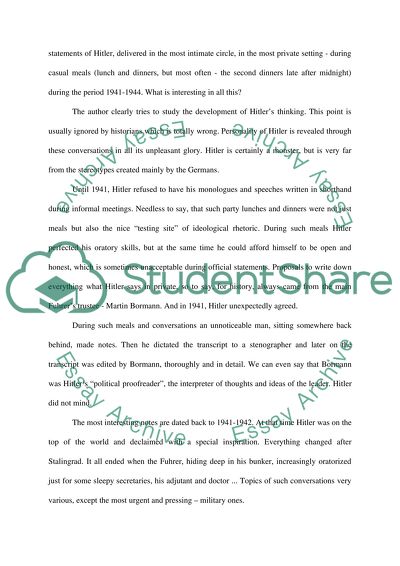Cite this document
(“Hitlers Table Talk, 1941-1944 Term Paper Example | Topics and Well Written Essays - 1500 words”, n.d.)
Retrieved from https://studentshare.org/miscellaneous/1583478-hitlers-table-talk-1941-1944
Retrieved from https://studentshare.org/miscellaneous/1583478-hitlers-table-talk-1941-1944
(Hitlers Table Talk, 1941-1944 Term Paper Example | Topics and Well Written Essays - 1500 Words)
https://studentshare.org/miscellaneous/1583478-hitlers-table-talk-1941-1944.
https://studentshare.org/miscellaneous/1583478-hitlers-table-talk-1941-1944.
“Hitlers Table Talk, 1941-1944 Term Paper Example | Topics and Well Written Essays - 1500 Words”, n.d. https://studentshare.org/miscellaneous/1583478-hitlers-table-talk-1941-1944.


